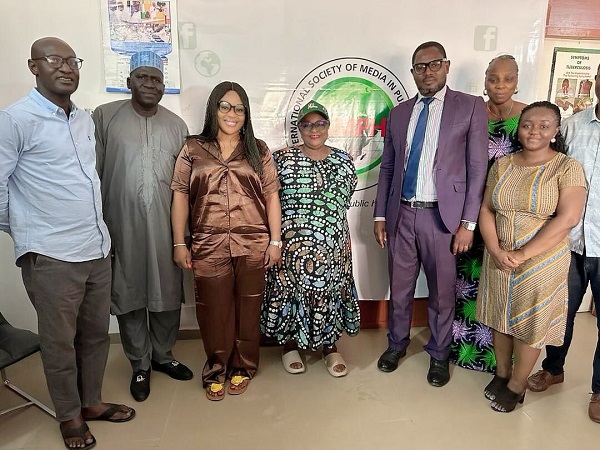
The founder and executive director of the International Society of Media in Public Health (ISMPH), Chief Moji Makanjuola emphasised the pivotal role of health journalists in shaping public health in Nigeria.
During a courtesy visit by the newly elected executive members of the Association of Nigerian Health Journalists (ANHEJ) in Abuja, Makanjuola underscored the significance of health journalists in addressing public health challenges and improving healthcare outcomes.
In a country grappling with issues like infectious diseases, maternal mortality and healthcare infrastructure deficiencies, health journalists stand as vital contributors to positive change. Makanjuola expressed, “Their work is instrumental in raising awareness, advocating for better healthcare policies, and ultimately enhancing healthcare services in the nation”.
In the dynamic landscape of healthcare, health journalists often operate in the shadows, despite the crucial role they play. Makanjuola emphasised that their contributions extend beyond mere headlines, stating, “They are the lifeline of information, awareness, and accountability”.
These seasoned health journalists serve as educators, bridging the gap between complex medical terminology and everyday language. Their work is pivotal in providing Nigerians with essential information about diseases, treatments and preventive strategies, especially in a nation where health literacy varies significantly.
Furthermore, health journalists serve as watchdogs, offering a critical lens on the healthcare system. Through investigative reporting, they illuminate issues such as inadequate healthcare infrastructure, corruption, and service deficiencies. Their scrutiny has a catalytic effect, compelling policymakers and institutions to address systemic problems that have long plagued the healthcare sector.
Health journalists are also instrumental in shaping health behaviors. They actively promote vaccination, advocate for regular check-ups, and stress the importance of adhering to prescribed treatments. During the height of the COVID-19 pandemic, their messages were life-saving as they propagated preventive measures and debunked myths.
Moreover, these journalists champion the causes of marginalized and vulnerable populations. Their reporting brings attention to the unique health challenges faced by groups in remote areas or with limited access to healthcare. This exposure galvanises support and resources to address these disparities, ultimately leading to more equitable healthcare access.
By covering medical research and innovations, health journalists inspire advancements in healthcare technology and treatments across the country. Their reporting often leads to increased investment in research, ultimately benefiting public health in the long term.
Makanjuola encouraged the Association of Nigerian Health Journalists to collaborate closely with the Ministry of Health to advance its four-point agenda for the country. She emphasised that health journalists play a critical role in driving improvements in healthcare, raising awareness, and advocating for better policies and services. She concluded by commending the association for their dedication and called on the ministry and its agencies to provide the necessary support to further empower health journalists in their mission to better inform Nigerians.
Earlier in his remarks, the ANHEJ president, Mr. Joseph Kadiri, commended the veteran health journalist for her immense contribution to the health sector and the association.
He posited that the association is committed to ensuring that health information gets to the Nigerian public in real time to enable them take better decisions for themselves and their communities.
In summary, he pointed out that health journalists are the unsung heroes who serve as pillars of public health in Nigeria. Their dedication to delivering accurate, informative, and impactful health reporting contributes significantly to the nation’s well-being.

